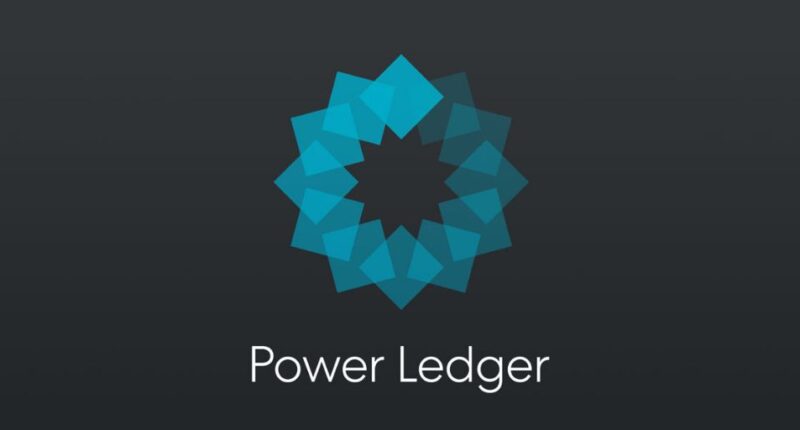Many industry professionals believe that Blockchain for renewable energy will be a significant use case in the near future. Blockchain offers an infrastructure for shared data and enhanced transparency. With these mechanisms, it makes it a perfect technology for energy grids. The Blockchain can be sourced to make energy grids more accessible, and can also be utilized to share network data in real time. Implementing this tech into energy grids will give customers complete control as to where they are sourcing energy. Many companies in the space that follow this protocol use “smart grids.” Companies like Power Ledger continue to show us how “smart meters” on the Blockchain result in reduced costs and make energy trading more efficient.
Power Ledger
Power Ledger leverages cryptocurrency and Blockchain technology to allow for peer-to-peer energy trading among businesses and consumers. Power Ledger allows for clean energy such as solar and wind to be created by businesses/individuals and then shared on an energy grid.
Power Ledger Recent Developments
Power Ledger recently completed a trial with KEPCO ( Kansai Electric Power ) , who specializes in electric power, heat supply, telecommunications and heat supply. The trial between the two entities extended 5 months. It focused on “blockchain-enabled demonstration of P2P transaction for post-FIT surplus power in Osaka, proving the accuracy and consumer acceptance of Power Ledger’s leading-edge technology in Japan in addition to Australia.”
The trial showed much promise in the cost efficiency space. By utilizing Power Ledgers technologies, communities can benefit from reducing current energy costs. According to estimates, Japan energy users can save nearly $18.5 billion in 2019 just by implementing Power Ledger’s tech. Energy generating customers also saw financial incentives by having the ability to sell excess energy via P2P through the PL platform.
Implementing POWR and Sparkz Tokens
The best way to think of the Power Ledger platform is through a “dual token system.” There is a POWR token which is publically traded to this date. You also have a Sparkz token which is classified as an “ecosystem token.” This token is pegged (backed) by an individual’s domestic currency. When an individual purchases or sells energy on the PL platform, its being done with the Sparkz token. POWR tokens generate Sparkz tokens but have other use cases such as rewards and access to the PL platform. As stated in the most recent submission by PL, “the more users on boarded onto Power Ledger’s platform and the more partnerships Power Ledger enters into, the more the token economy will drive the demand for POWR.”
Leaderships Thoughts Post Trial
After the 5 month trial was concluded by Power Ledger and Kepco, both teams shared their insight based on the experience. According to Fumiaki Ishida ( KEPCO General Manager ) “Although there are still many challenges like amendments of relevant laws for commercialization, Power Ledger’s product presents significant opportunities for prosumers to sell their excessive energy at more advantageous prices and for consumers to buy it at more affordable prices.” With KEPCO being a reputable and successful company, it was great for Power Ledger to get this type of feedback. It seems like Power Ledger has significant potential to make a true impact in the Blockchain energy trading arena.
Power Ledger plans to continue developing products revolving around the digital energy space. Aside from increasing the presence of distributed renewables in Japan, Power Ledger continues to value consumers and wants to insure they have more options when it comes to energy production and sourcing.
Notice: Information contained herein is not and should not be construed as an offer, solicitation, or recommendation to buy or sell securities. The information has been obtained from sources we believe to be reliable; however no guarantee is made or implied with respect to its accuracy, timeliness, or completeness. Authors may own the crypto currency they discuss. The information and content are subject to change without notice. Visionary Financial and its affiliates do not provide investment, tax, legal or accounting advice. This material has been prepared for informational purposes only and is the opinion of the author, and is not intended to provide, and should not be relied on for, investment, tax, legal, accounting advice. You should consult your own investment, tax, legal and accounting advisors before engaging in any transaction. All content published by Visionary Financial is not an endorsement whatsoever. Please also visit our Privacy policy; disclaimer; and terms and conditions page for further information.

